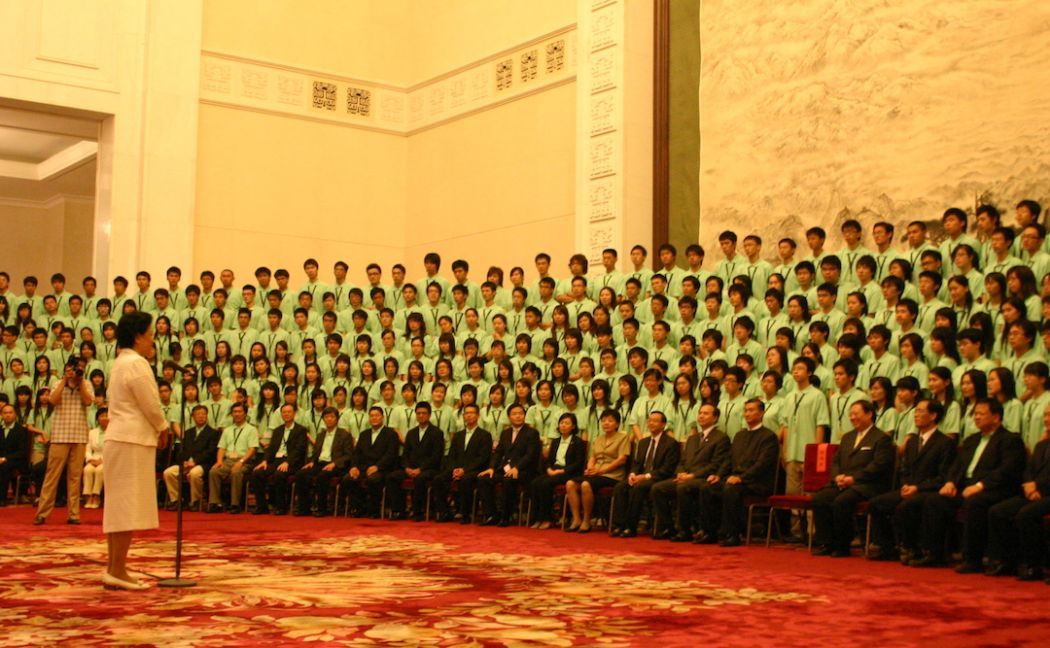The Education Bureau spent around HK$312 million of public money over the last five years to send Hong Kong students on exchange tours to mainland China.
There is an upward trend of government spending on the tours. Nearly HK$70 million was used last year in subsidies for students to participate in the programmes, compared to HK$50 million spent in 2012. The bureau plans to spend HK$110 million next year.

The Education Bureau released the information in a document recently submitted to the legislature’s Finance Committee. The committee is tasked with approving budget proposed by the government.
The bureau said these tours aim to allow students to “gain first-hand experience of our country’s development” in terms of history, culture, career education and other aspects “from multiple perspectives.”
More students involved
There is also a growing number of students who received subsidies to join mainland Chinese tours, with around 26,100 recipients in 2012 to an estimated 61,400 last year.
The Education Bureau plans to increase the number for next year, subsidising 105,800 students from primary, secondary and tertiary schools to go on exchange tours next year. Of these students, around 60,700 are expected to come from secondary schools and 41,800 from primary schools. Tertiary-level students remain a minority of subsidy recipients.

There is an upward trend of primary school students being awarded subsidies to participate in the tours. In 2012, 7,400 primary school pupils received such subsidies. The number nearly tripled to 21,500 last year.
Meanwhile, the number of tertiary-level students receiving subsidies is on the decline. The number dropped from 5,900 in 2012 to 3,500 last year.
Home Affairs Bureau
The Home Affairs Bureau also provides funding for young people to join exchange or internship programmes in mainland China and overseas. More than 22,000 young people received funding for Chinese programmes last year, while only 110 were funded for joining overseas programmes.

Nonetheless, the government proposed allocating a one-off fund of HK$100 million for overseas youth exchange programmes as part of an effort to allow more young Hongkongers to gain experience abroad.
The bureau also proposed spending HK$11.2 million next year on sponsoring exchange tours for youth to countries belonging to the Belt and Road Initiative – a development project led by China and actively promoted by the Hong Kong government.
Secretary for Education Eddie Ng is scheduled to attend a special meeting with the Finance Committee on Friday to answer lawmaker’s questions over his bureau’s proposed spending for next year.
